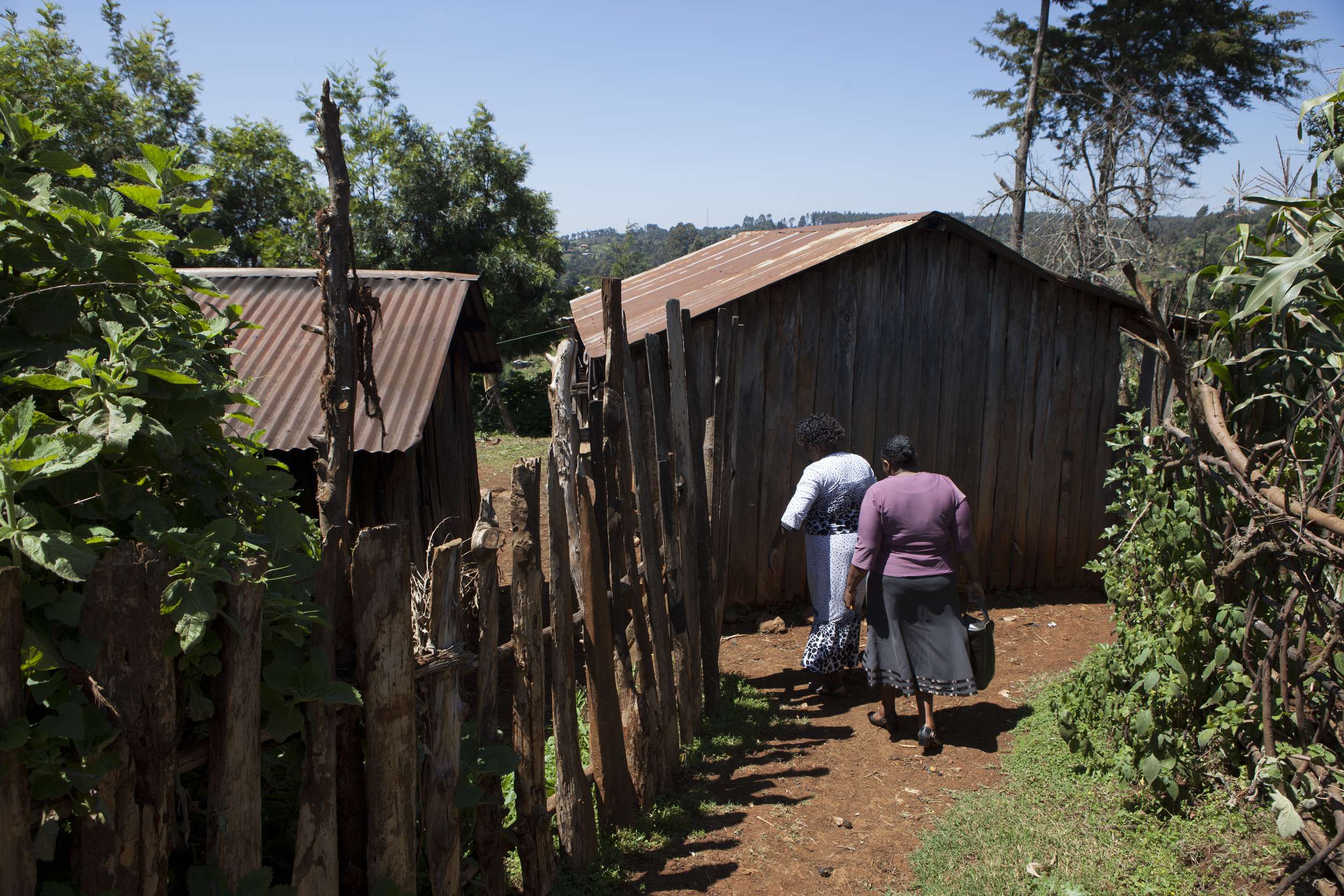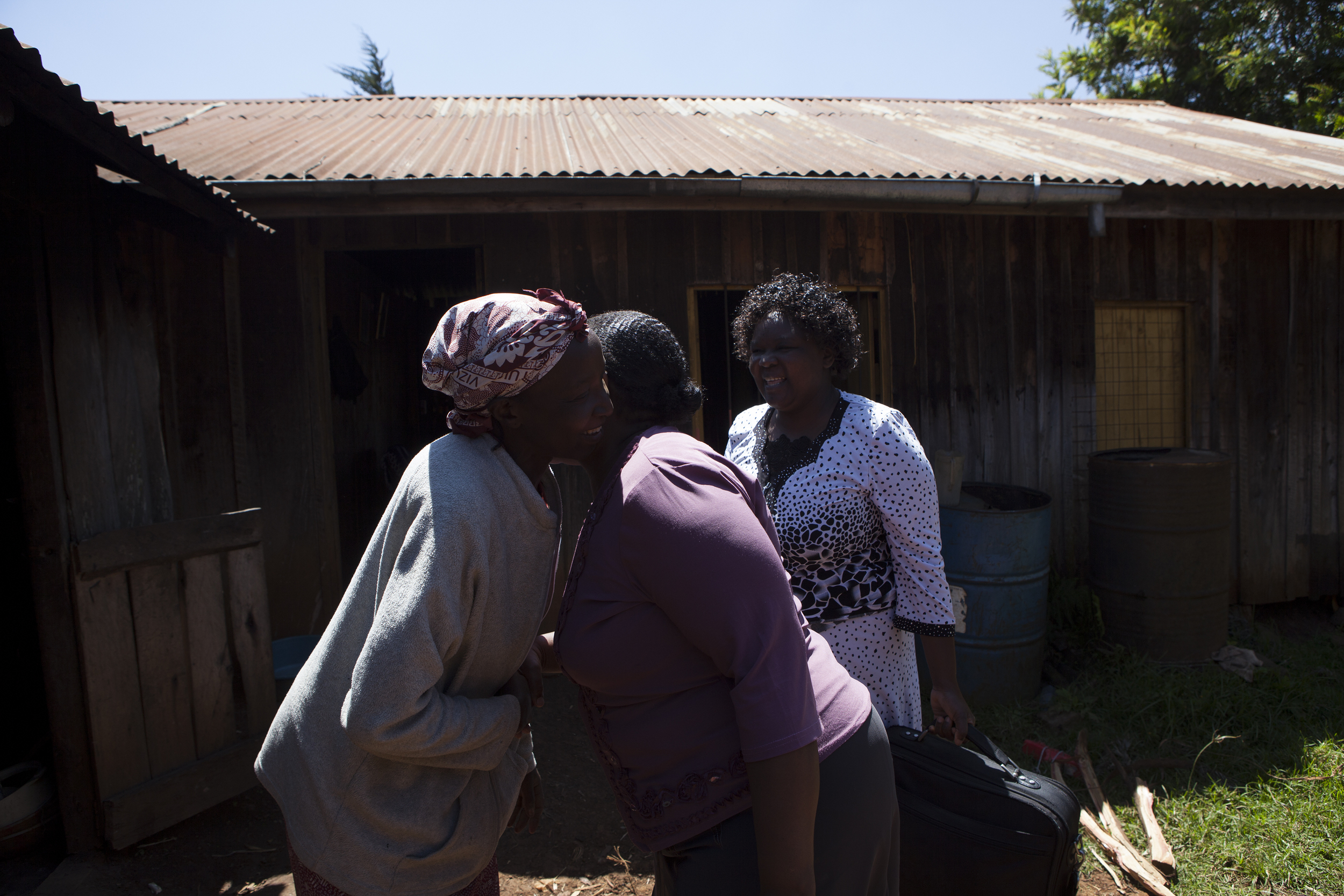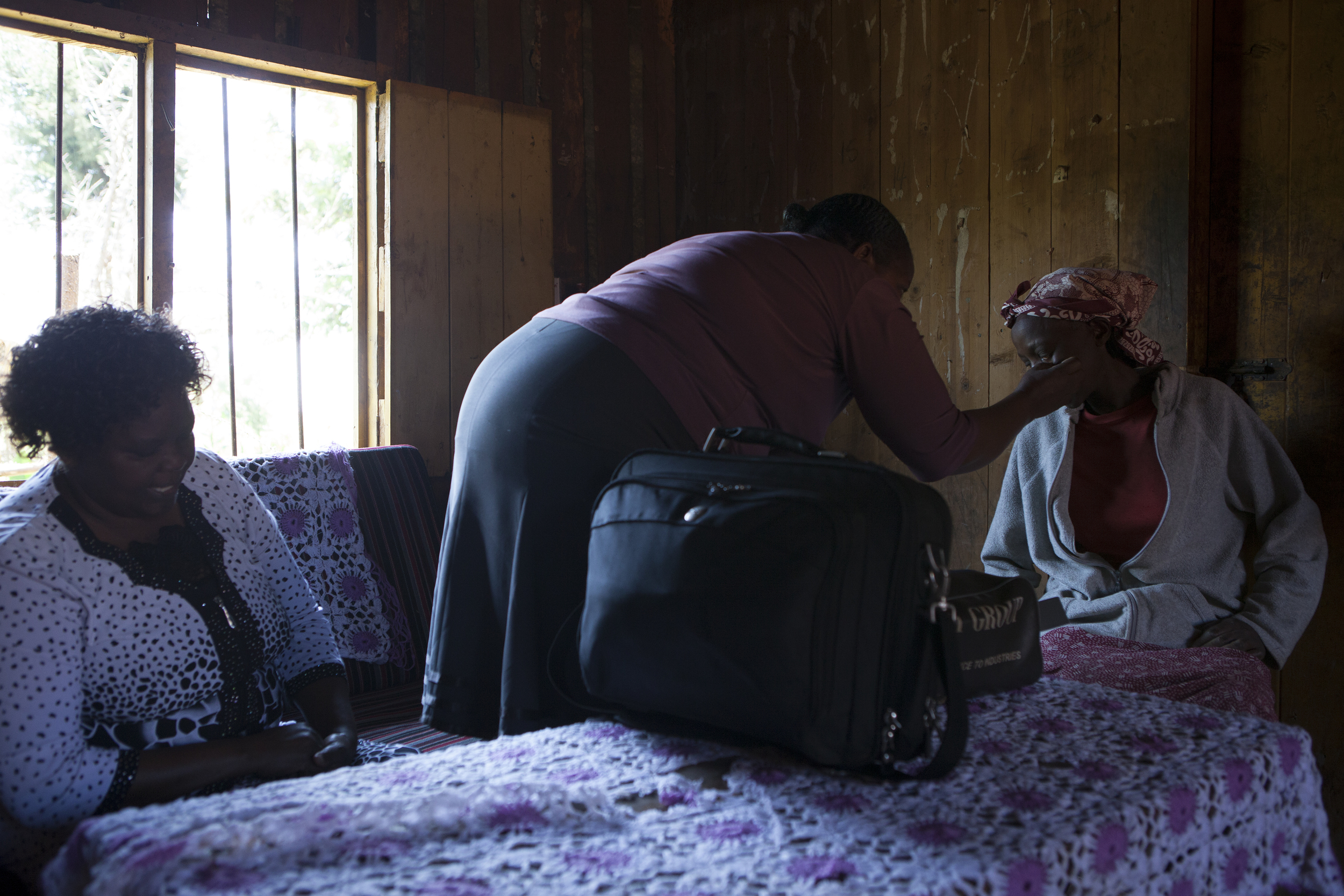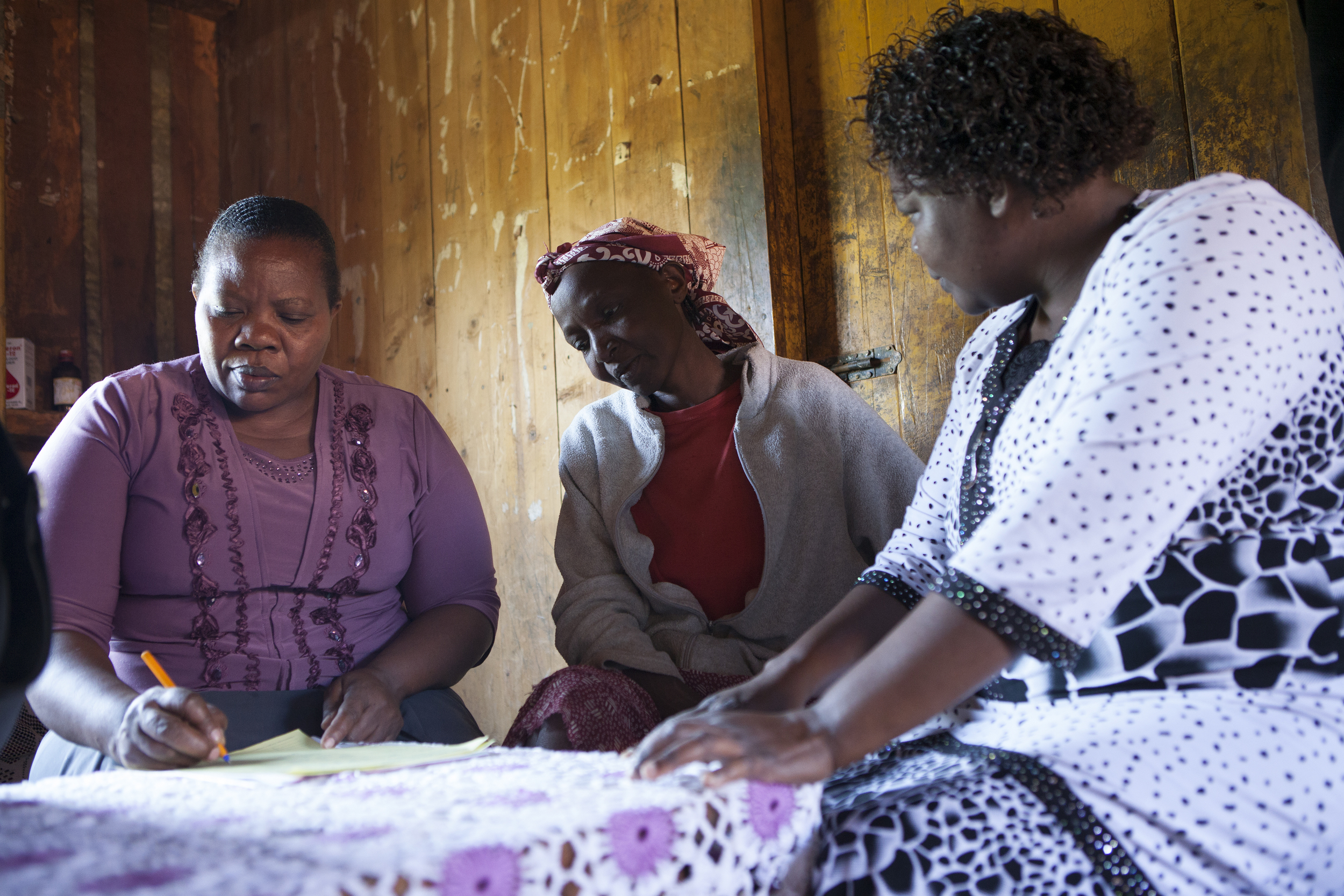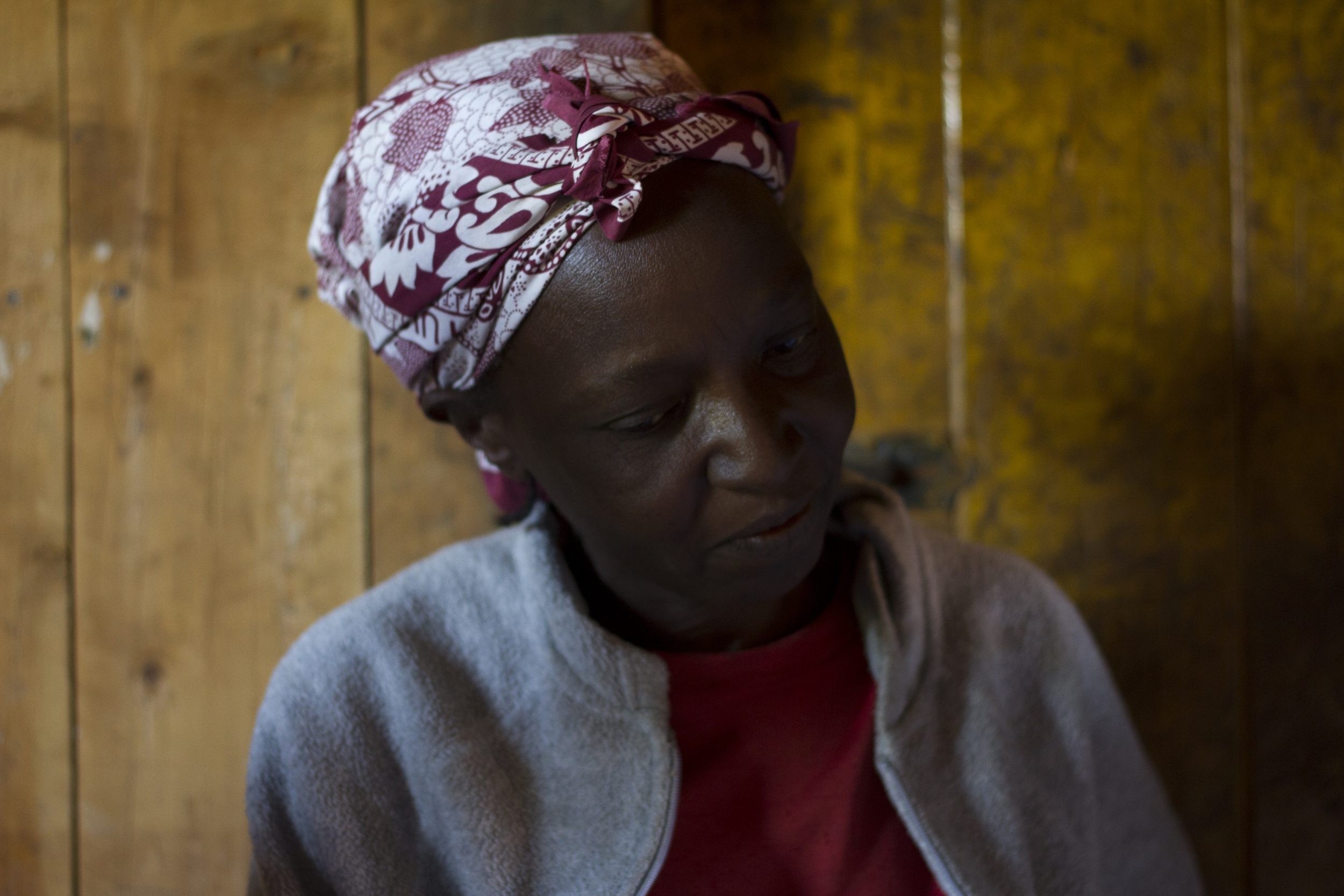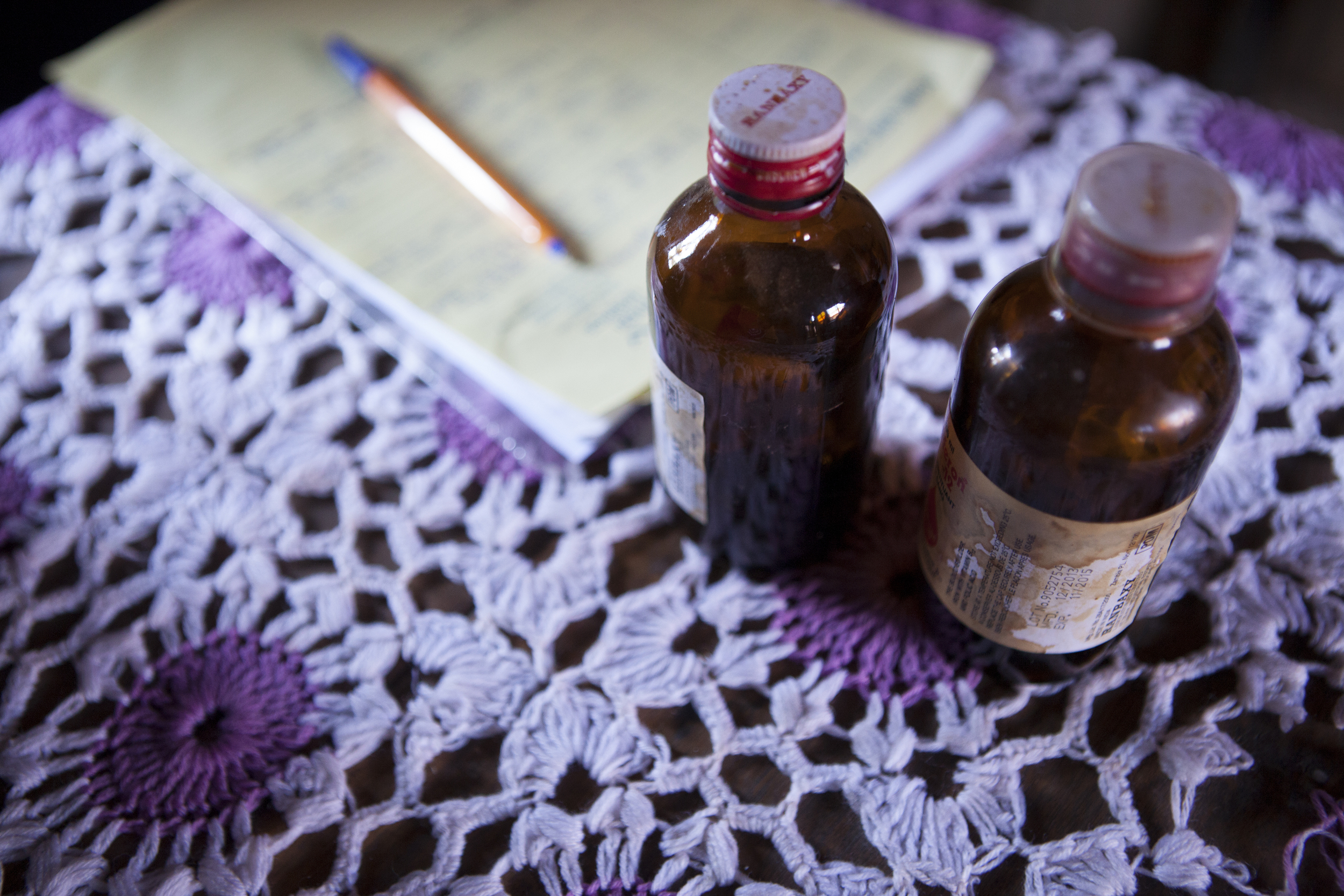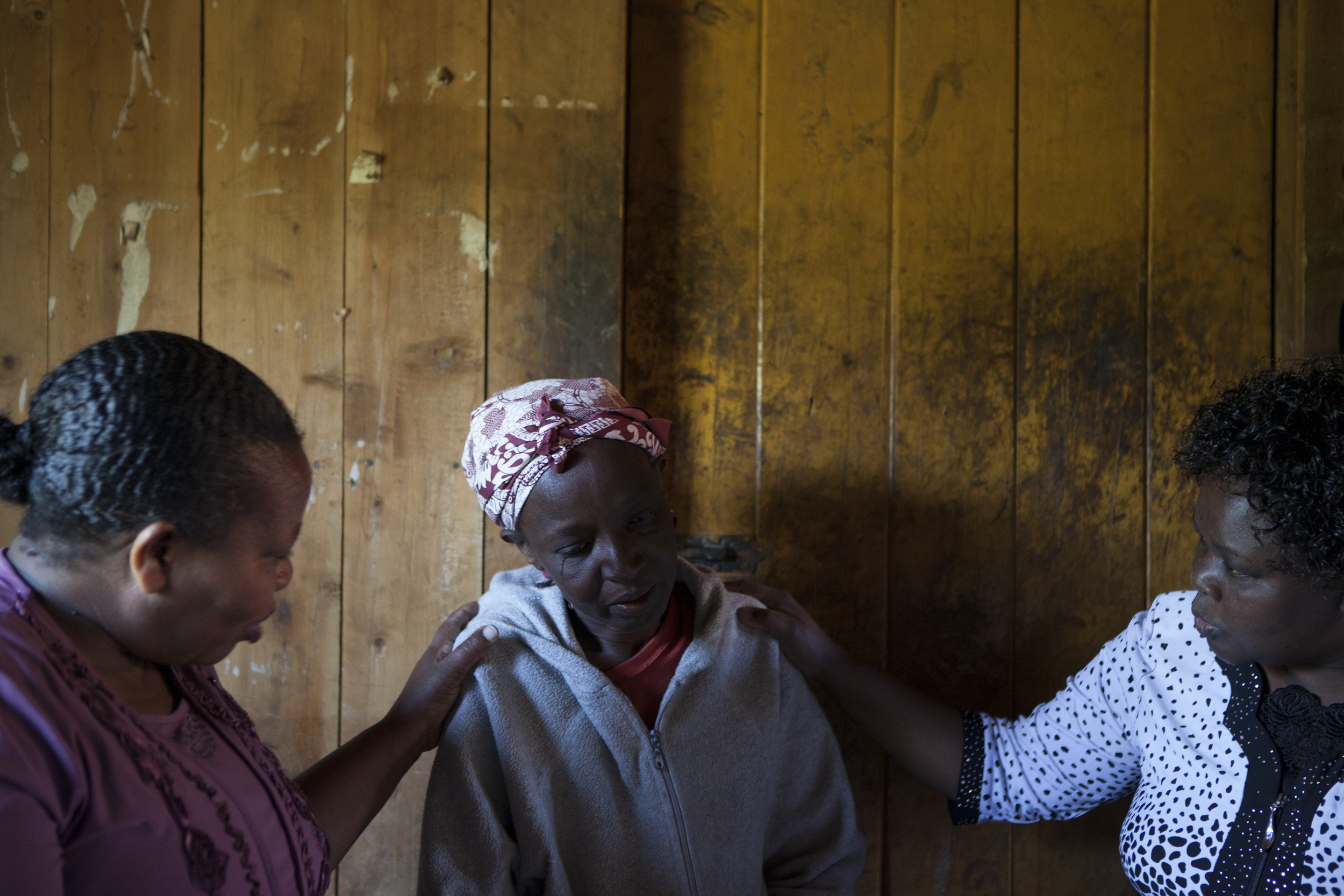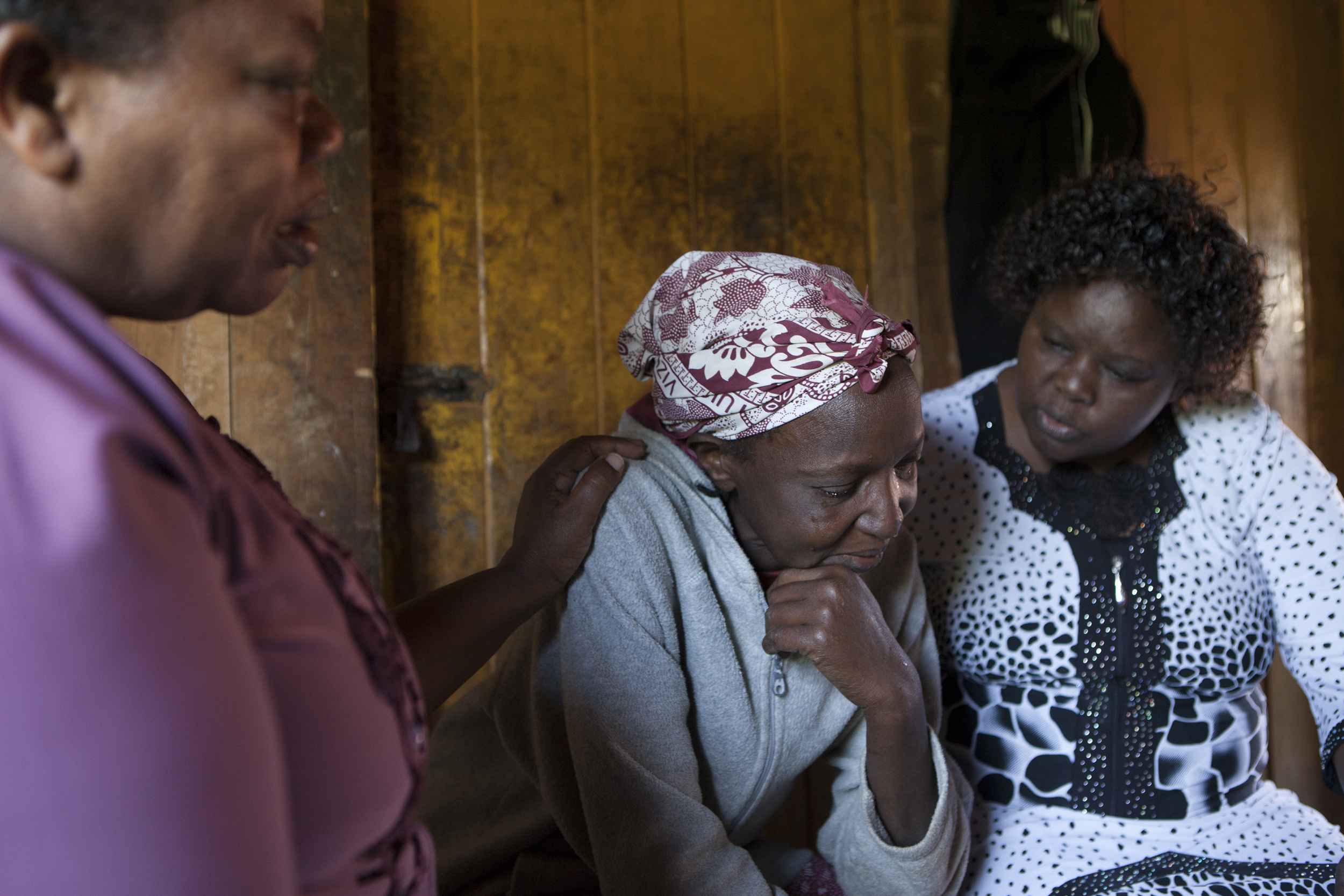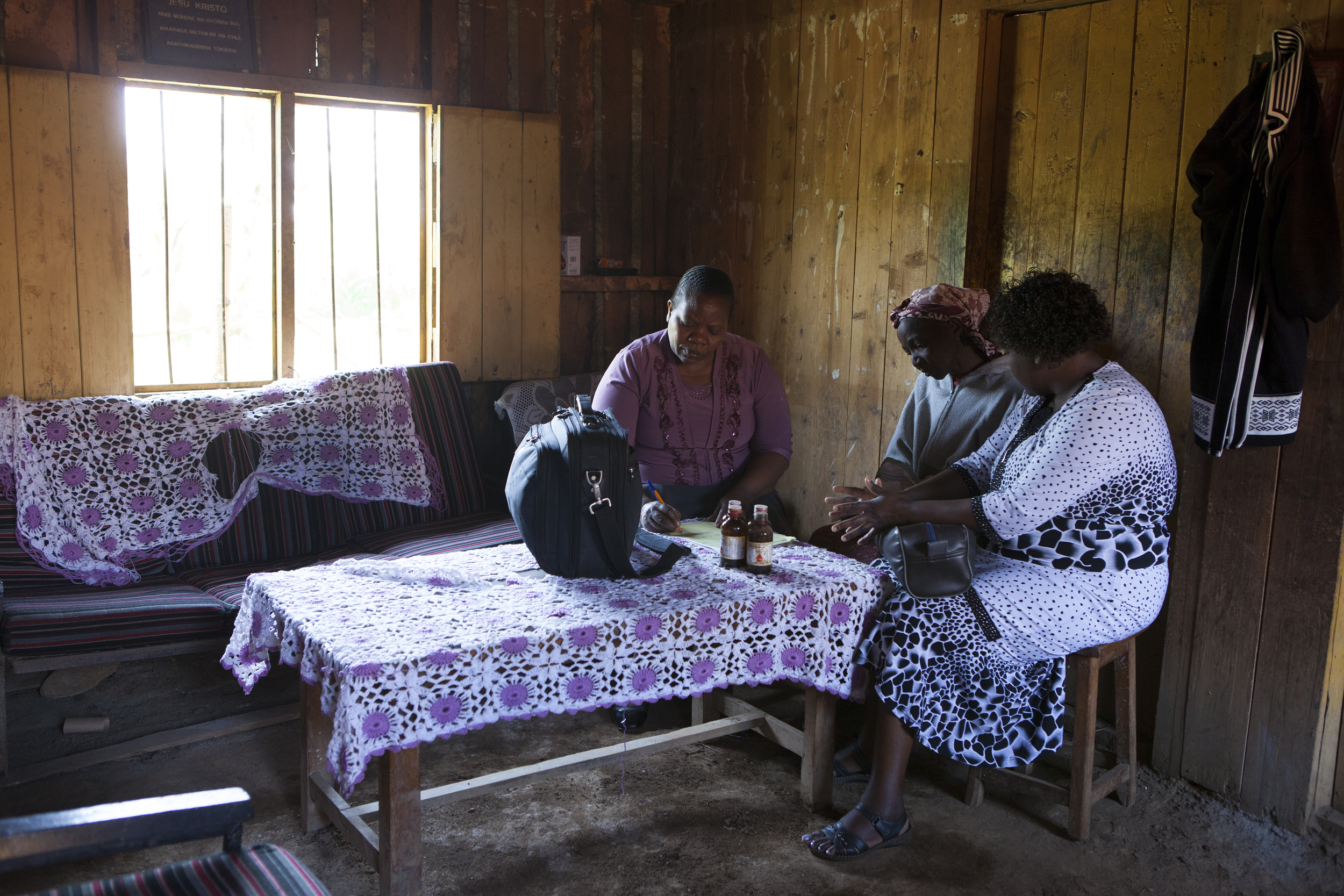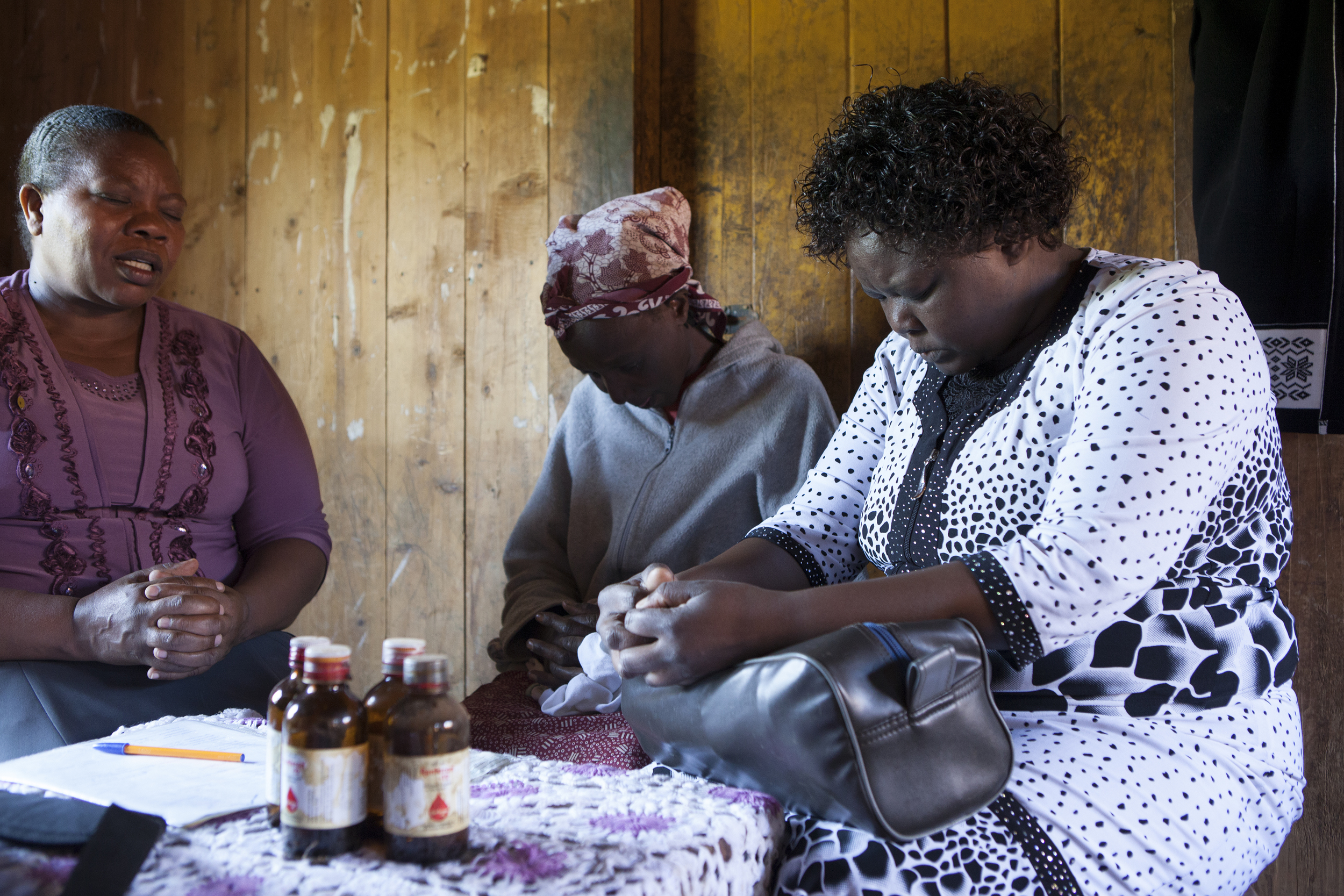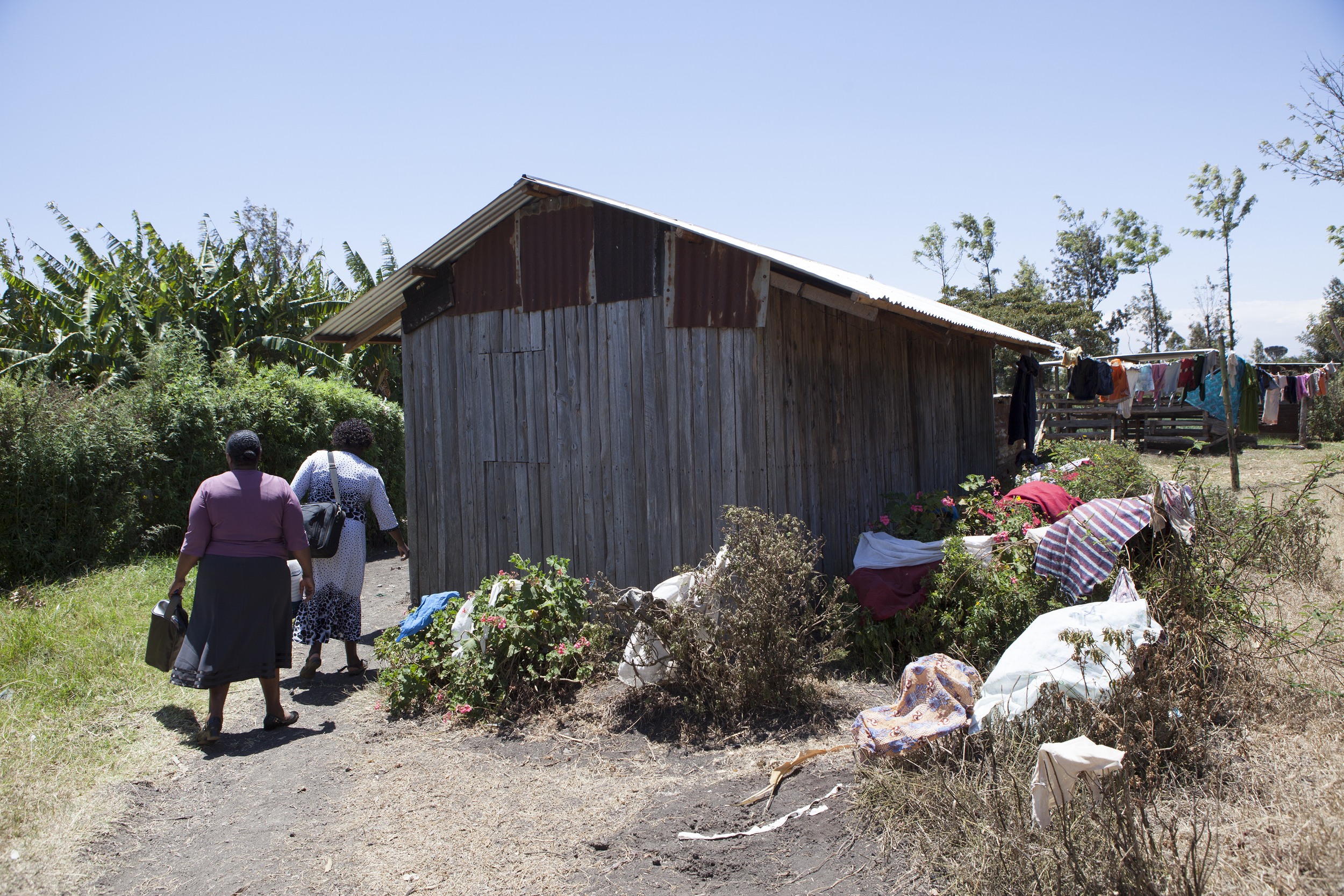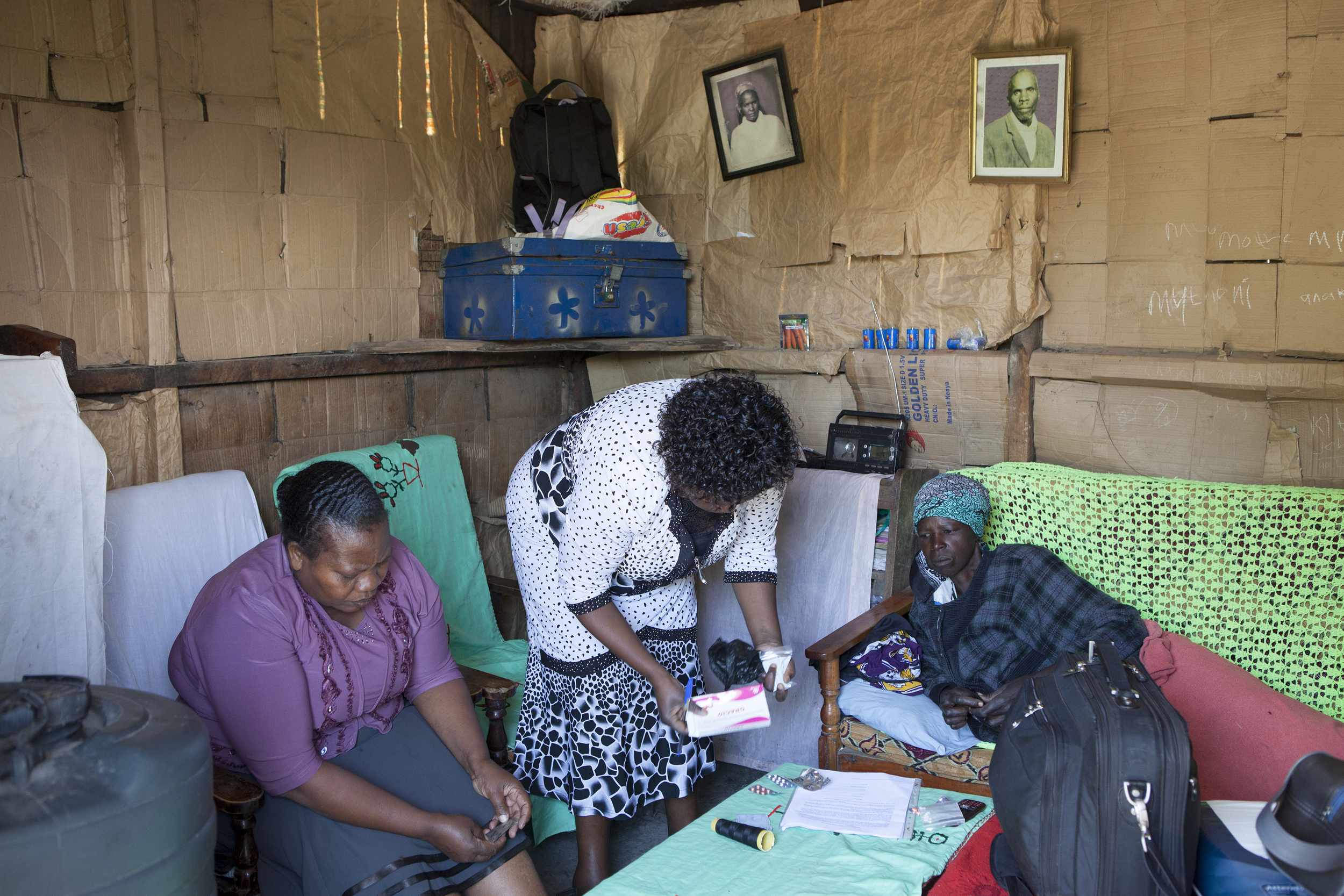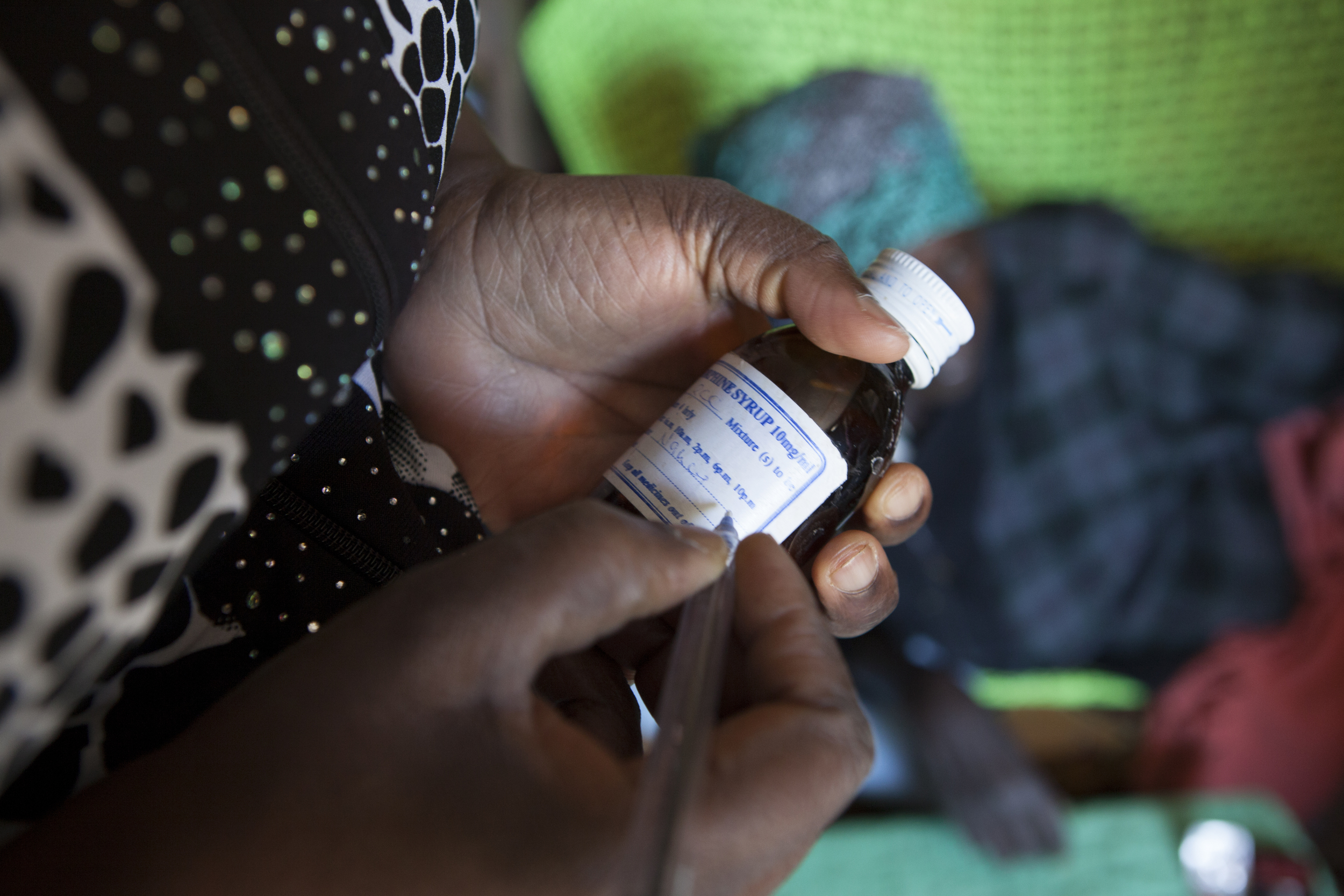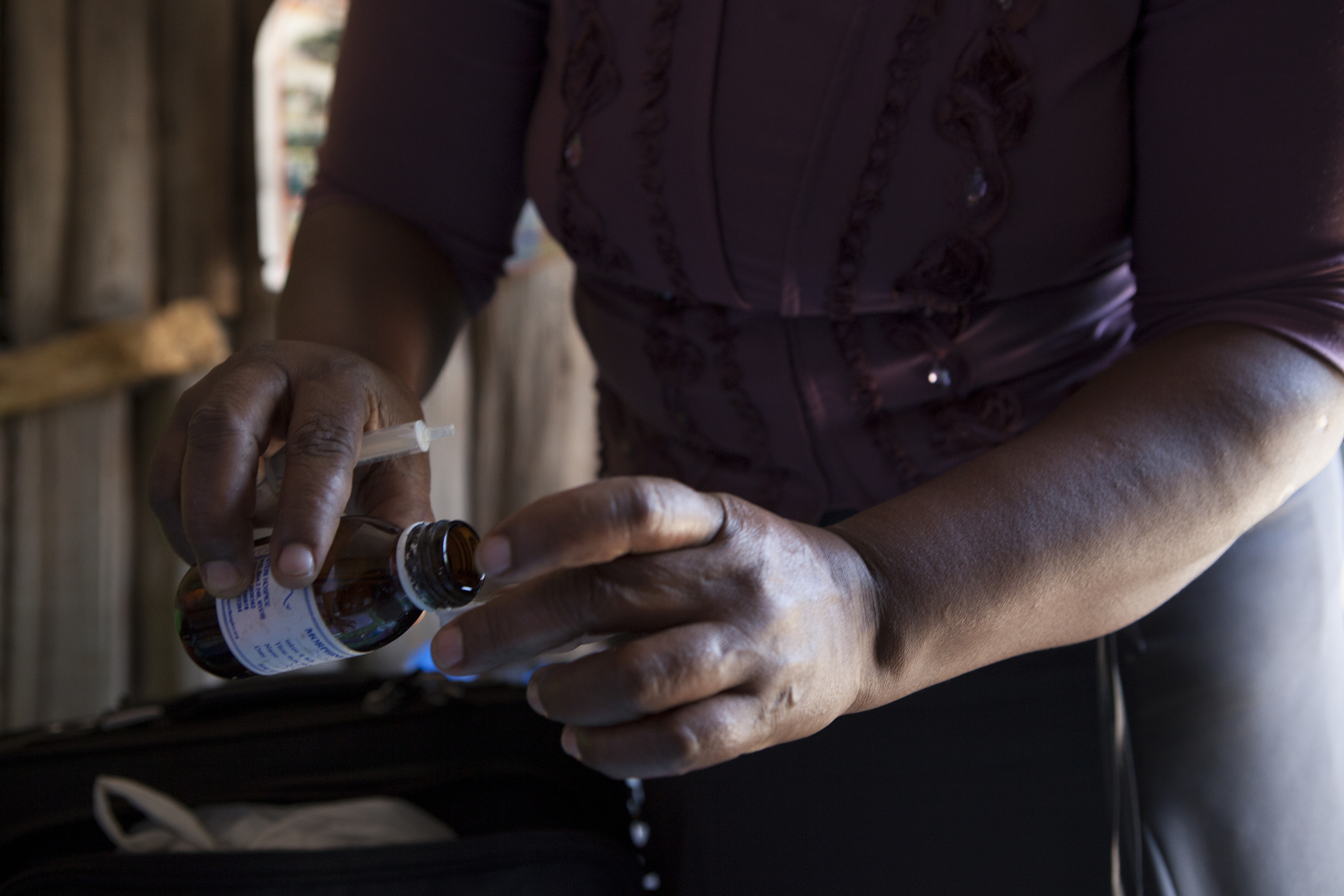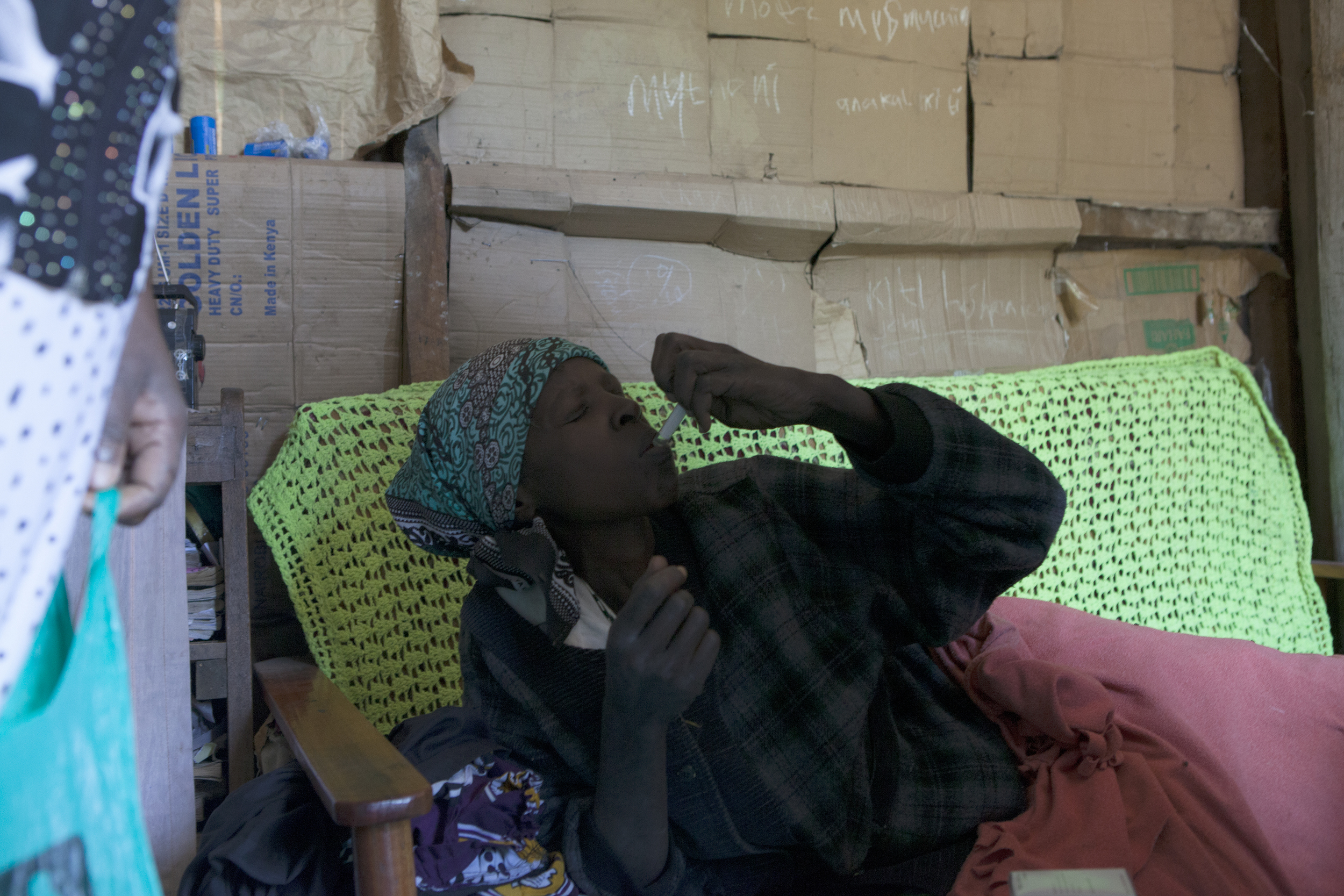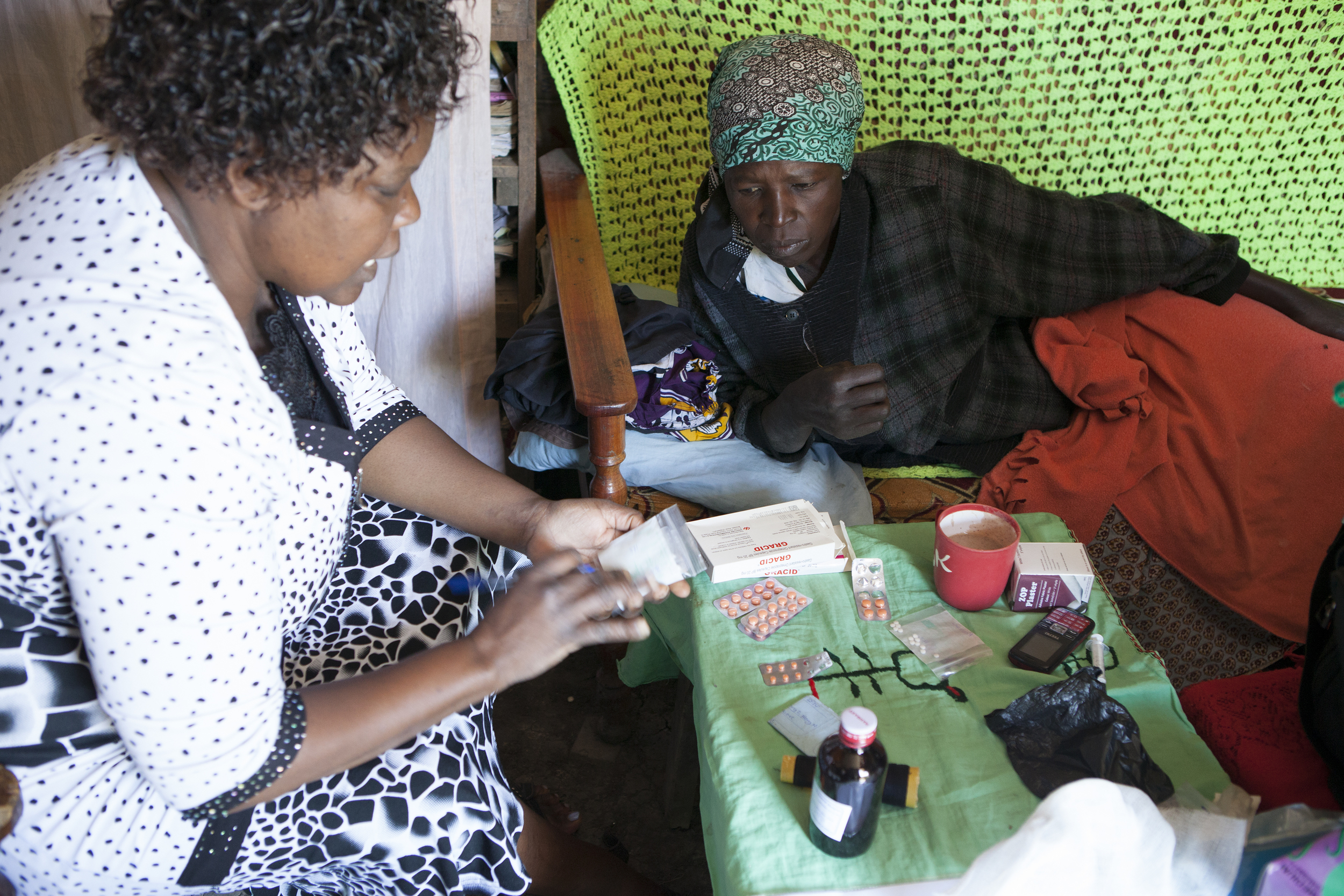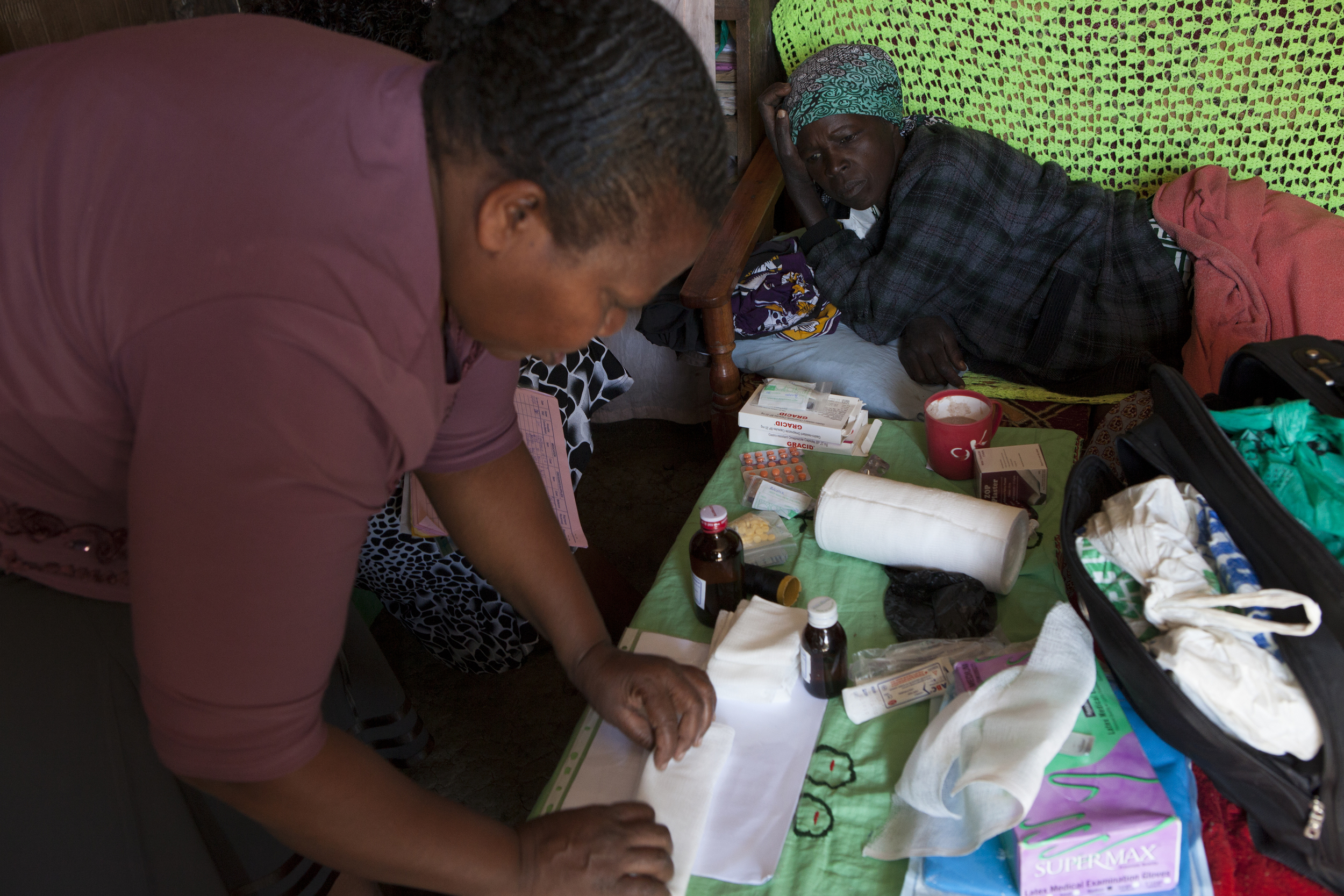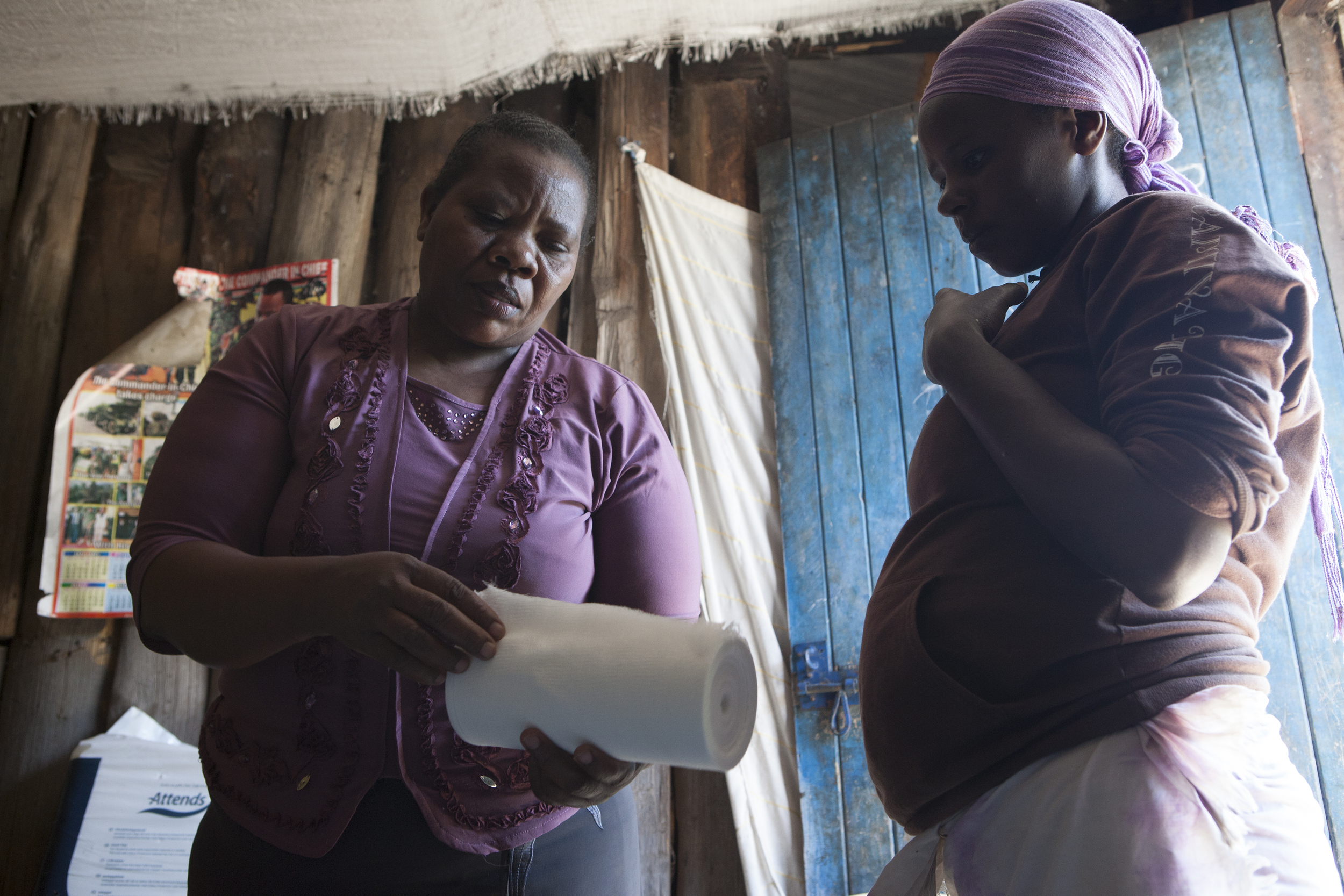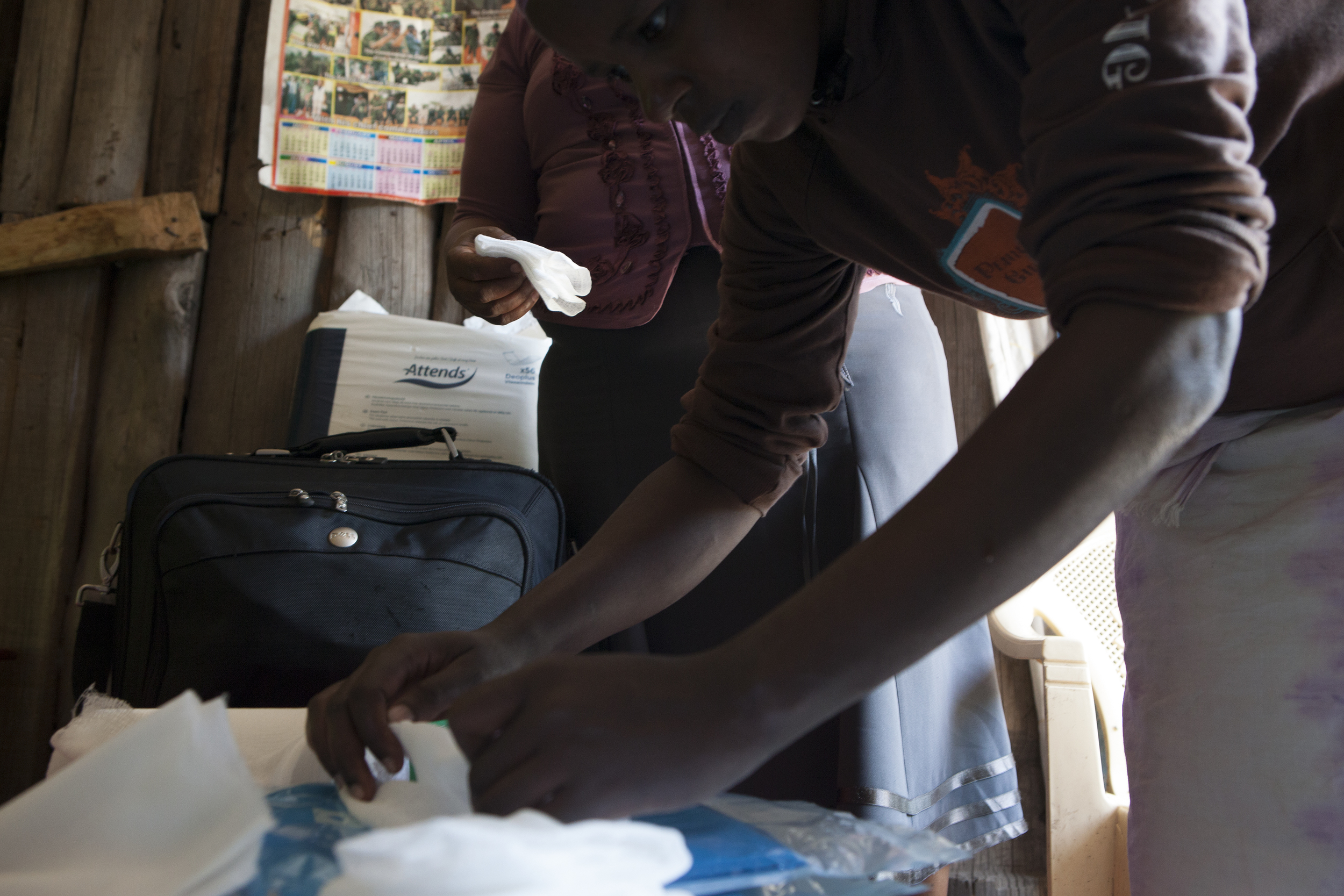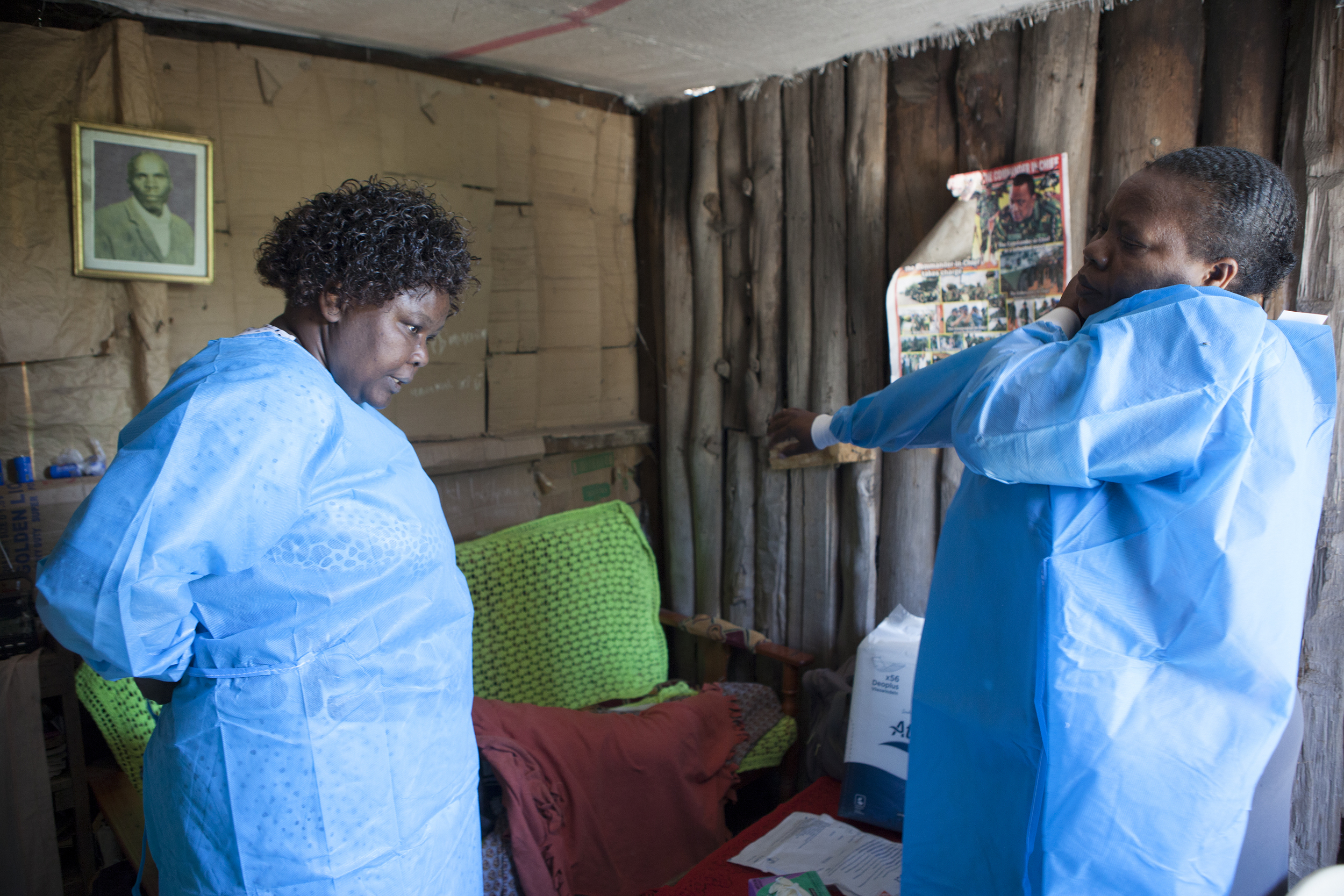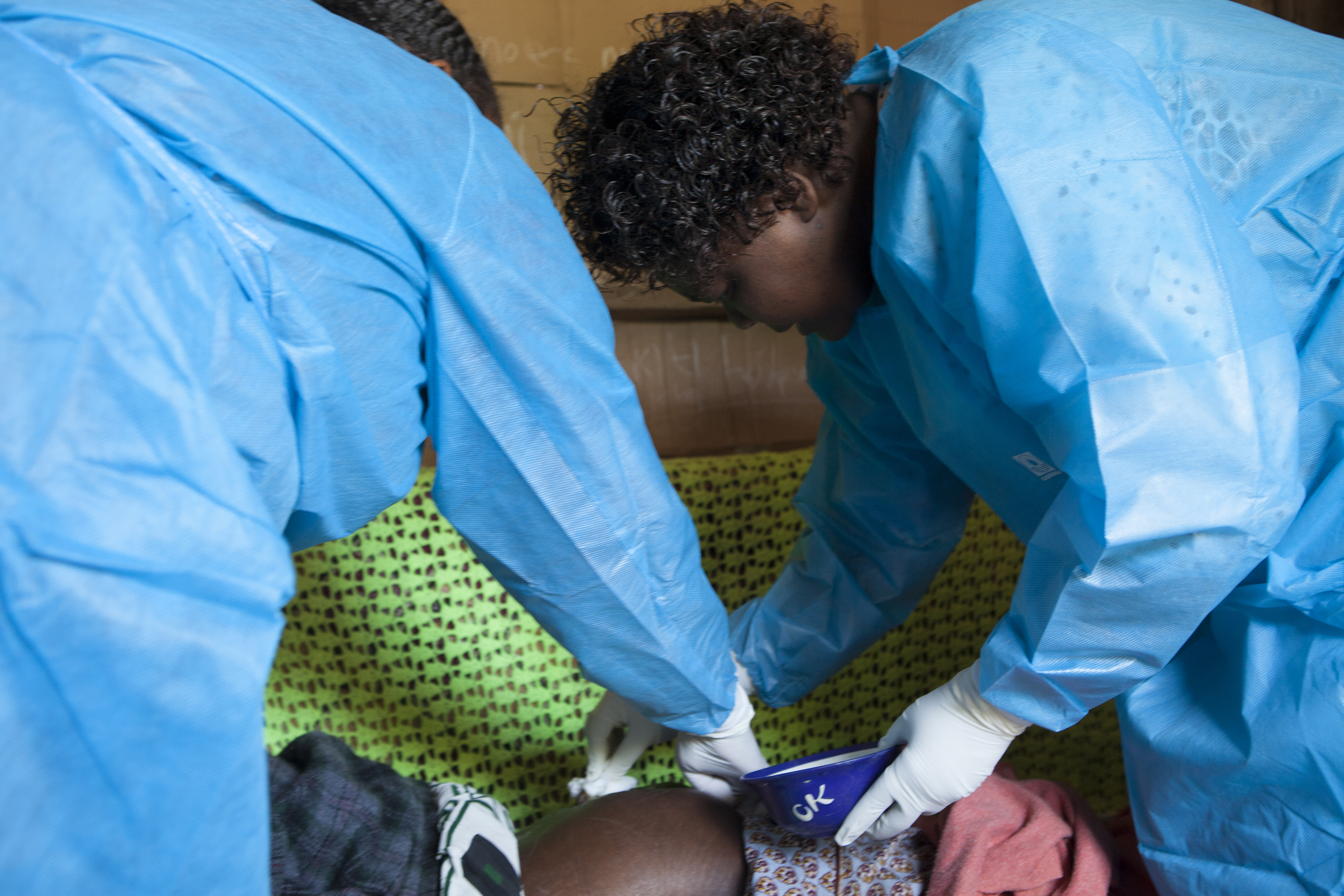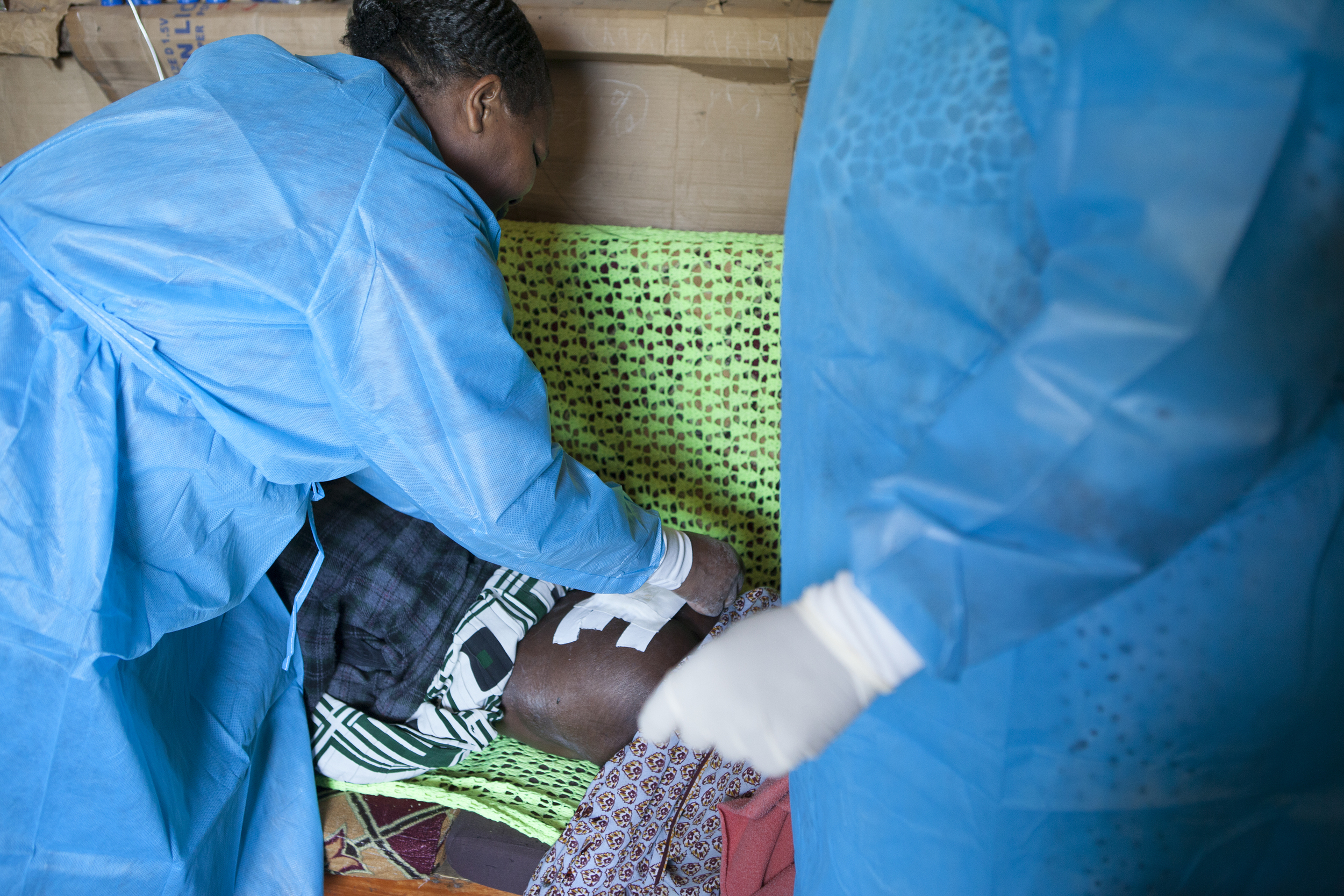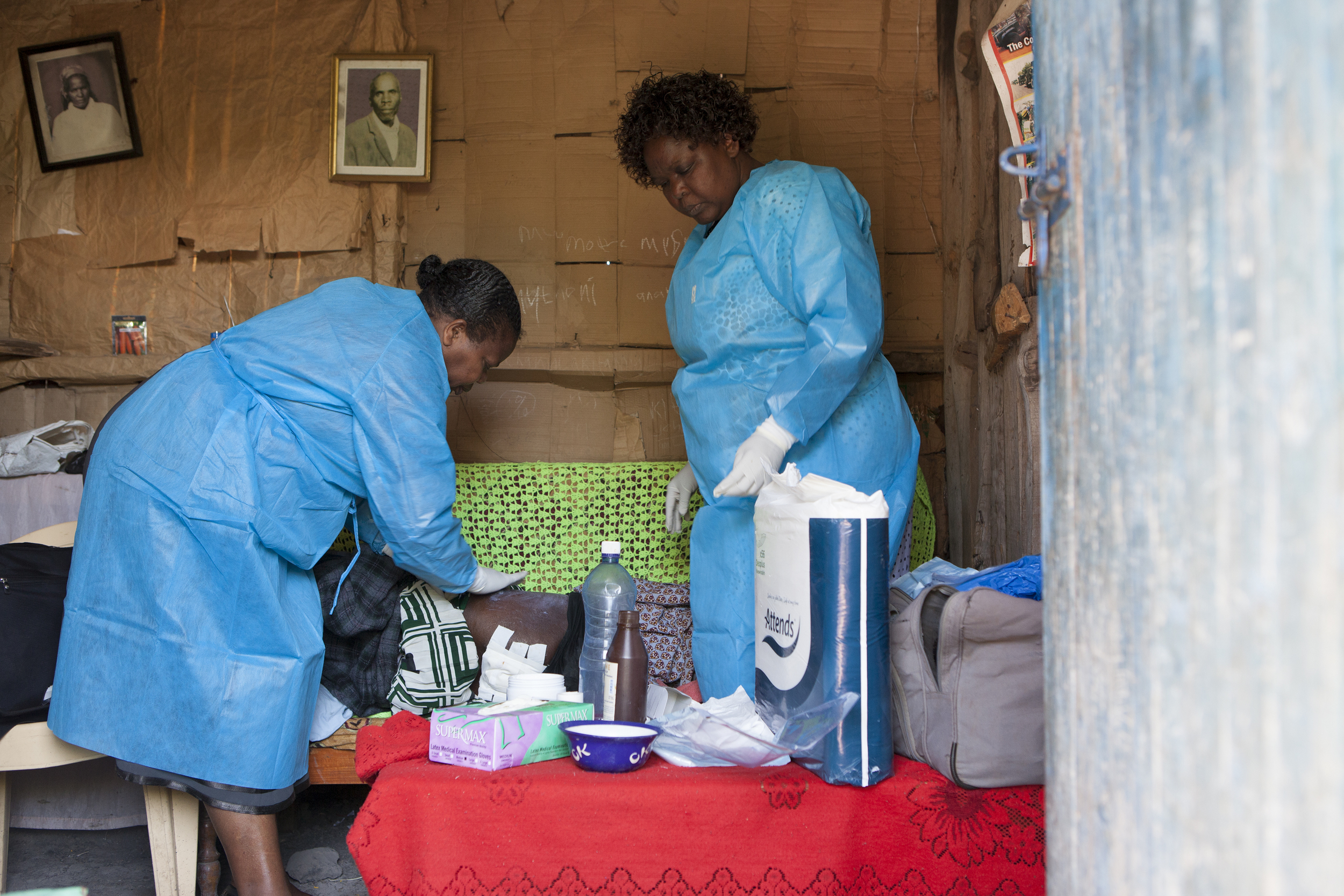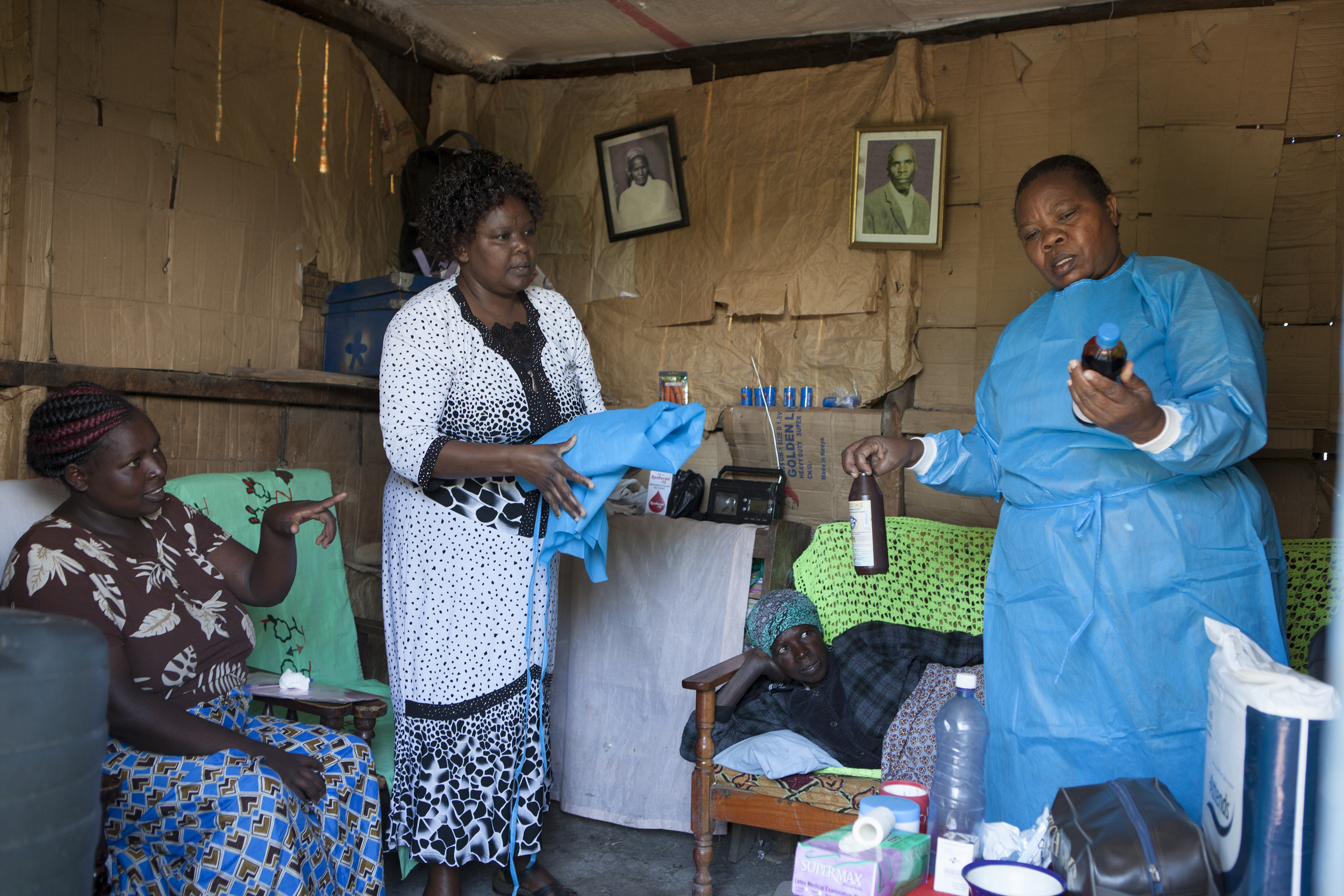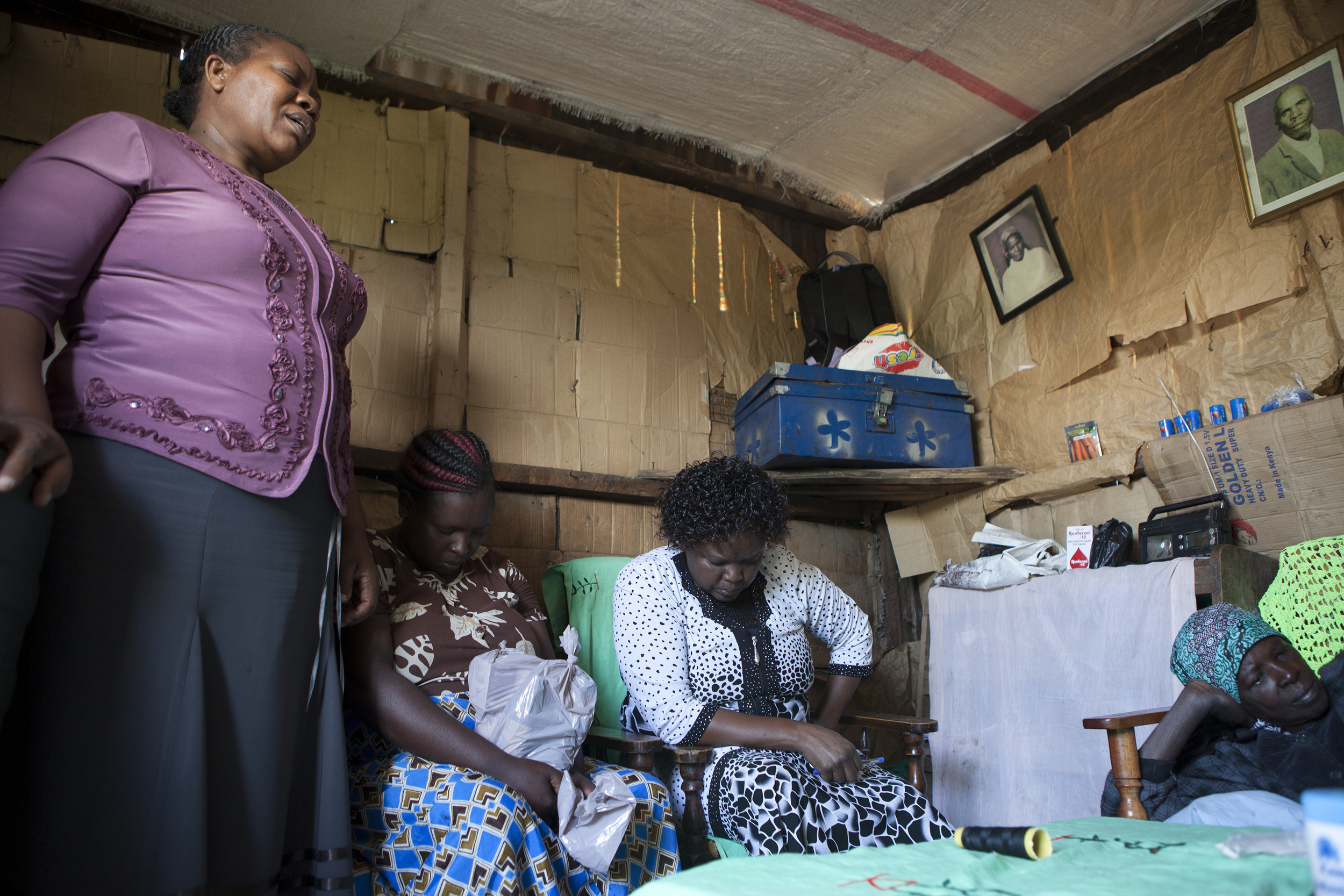Visiting Nurses of Nyeri
by Toby 'Biko' Wesa
Visiting nurses are a critical link in providing palliative care. With far too few hospices and palliative care units throughout the country, visiting nurses offer patients care at home, allowing them to stay in a familiar environment.
Nyeri Hospice, located in the Mount Kenya region of central Kenya, provides this service. The visiting nurses of Nyeri Hospice, , family membersThe Nyeri Hospice has been in operation for
Visiting nurses are a critical component of palliative care. At Nyeri Hospice in Nyeri, about a four drive north from Nairobi, Esther and Mercy are
One main component of the services they offer is
Thursday August, 2, I accompanied nurses, Esther and Mercy, from the Nyeri hospice on their regular vists to their patients’ homes. We left the Nyeri Hospice at 10:45am to visit the first patient, Rahab Wangechi in Kirurumi, who lived 12Km from the hospice
Rahab complained of leg pains to the nurses, so the first thing they checked was her eyes to see her blood levels. They confirmed that she had low amounts of blood in her body and asked her to take foods that would replenish that.
Rahab is anemic. Anemia is a condition in which the body does not have enough healthy red blood cells. Red blood cells provide oxygen to body tissues. A few years ago, before Rahab was taken to the hospice, she was bedridden in a very critical state. The Nyeri hospice did all they could to restore her health. She can now walk and take care of herself.
The nurses and Rahab began a conversation with laughter and joy, but a sorrowful mood quickly occupied the room. They were speaking in Kikuyu, but Rahab's distress was made clear by the tears running down her cheeks.
As Rahab stood to go to her room to get a cloth to wipe her tears, Esther explained why Rahab was crying uncontrollably. Her sister-in-law, who lived next to her, was isolating and mistreating her. Esther then pointed at a picture on the wall. The man in the picture was Rahab’s father. He loved Rahab and had been the one holding the family together. Since his death earlier in the year and with her illness, Rahab has been living in fear. Fear of death and fear of being ignored by family members. She wishes her dad was alive, then maybe the only pain she would have to cope with would be physical pain; something that can be taken away by just a dose of morphine. But physical pain wasn’t her only concern. Rahab was also suffering from social and psychological pain.
This is a common problem among patients with chronic illnesses, Esther and Mercy explained, isolation from friends and family members. Once the hospital bills start coming in, family and friends slowly start to disappear. You are left to stand alone and battle everything that comes with the disease. That’s why there’s such a need for visiting nurses, who offer not just medical services but support and a listening ear for patients.
The second patient the nurses visited was Nancy Wagaki, suffering cervical cancer in its advanced stages. Nancy lives on the drier side of Nyeri.
They are welcomed by her younger daughter and her children who were sitting outside the house. Nancy is inside, lying down on the couch.
The nurses go out on such home visits every day of the week except Thursdays where most patients go to the Hospice for a daycare, an activity that allows them to share their stories to other patients. The day care really benefits them and is part of palliative care.
Esther and Mercy greet and start talking with Nancy. The nurses find out that Nancy hadn’t been taking morphine that was prescribed to her on their last visit because Nancy feels burns in her throat whenever she takesit. Esther and Mercy think it may be because morphine is bitter in taste and chances are she doesn’t take anything after morphine because of loss of appetite. Esther decides to administer morphine to Nancy before they started talking to her so that the pain she’s in doesn’t hinder communication. Esther further explains to me that the morphine will help numb the pain when the nurses clean her wound on her rear.
Nancy had a wound in her rear that forced her to lie down in the position she was in, sadly because of that she had started to develop bed sores on her hip sides as well.
Nancy takes thesyringe given to her by Esther containing morphine and drinks it. Feeling the bitterness of themorphine, she wears a frown across her face as she gazes down even after taking someporridge given to her by Mercy.
They continue with conversation in Kikuyu as Esther prepares dressing for Nancy’s wound. She also shows Nancy’s younger daughter how to cut and prepare the dressing. Having notaccepted her mother’s condition and being reluctant to learn how to do it, she finally agrees tothe nurse’s request after a little bit of convincing. She’s however afraid of looking at the nurses cleaning her mother’s wound and resorts to standing outside and look away.
Esther pulls up Nancy’s dress to expose the wound. After that exercise, the nurses lend an ear to Nancy as she updated them on her overall status. Esther notes down Nancy’s overall status and tracks her progress from the last meeting.
Nancy’s older daughter who wasn’t around arrived later on and was so happy to see the nurse. They all sat down again as Esther explains to her how to administer the medicine she’s leaving behind. They all pray, prayer is part of spiritual palliative care, before saying goodbyes.
Is this what the nurses go through everyday? How do they cope with it? How do they still come back to the patients’ homes and comfortthem? How do you comfort someone who’s counting down their last days?? These must bespecial kinds of angels, these nurses I wonder how they do it. But wait… how do the patient’smake itthrough everyday? Just imagine being told you have cancer in its final stages andthere’s no cure but to treat the pain you’re experiencing. Physical pain is excruciating butpsychological pain is even worse. Palliative care takes care of this. It relieves the patients from such pains.


